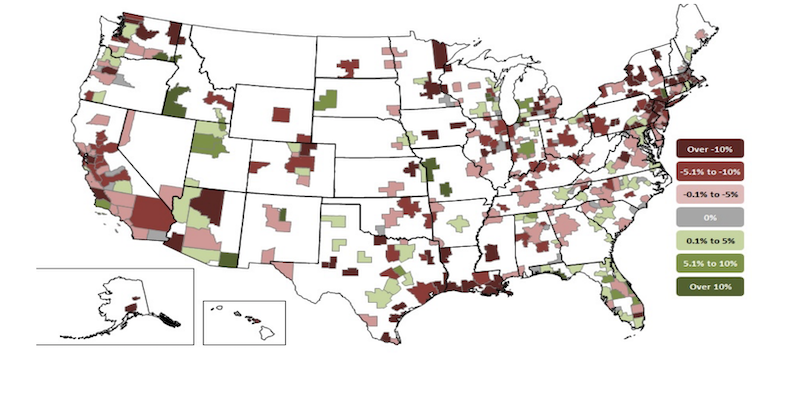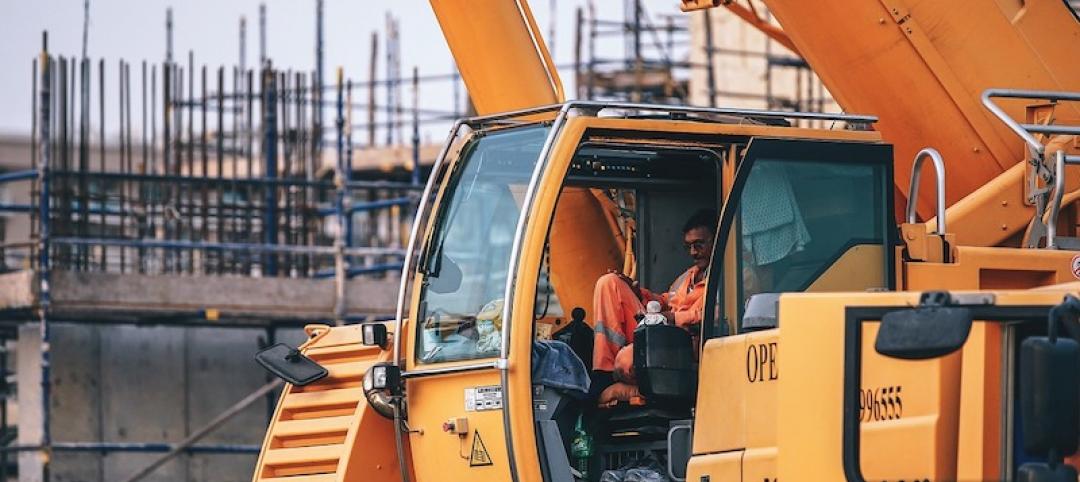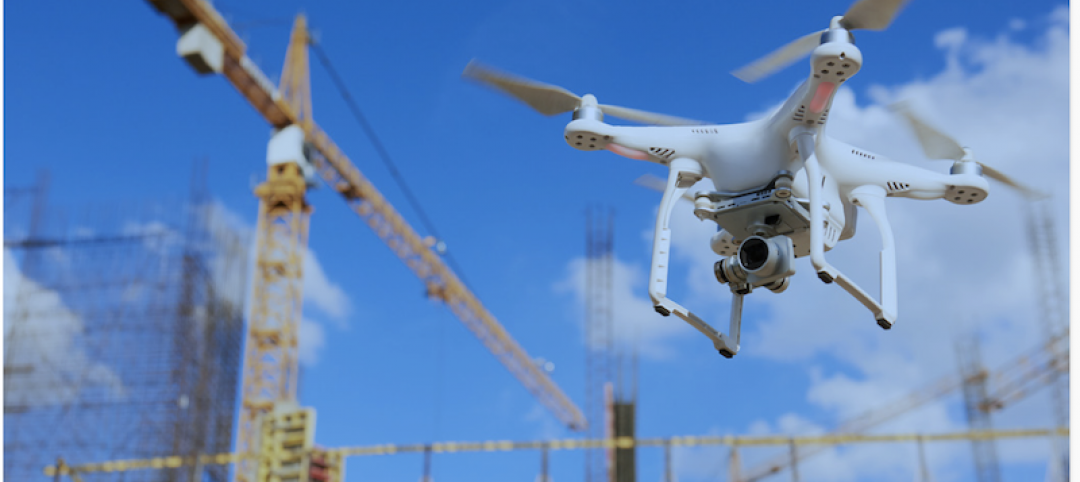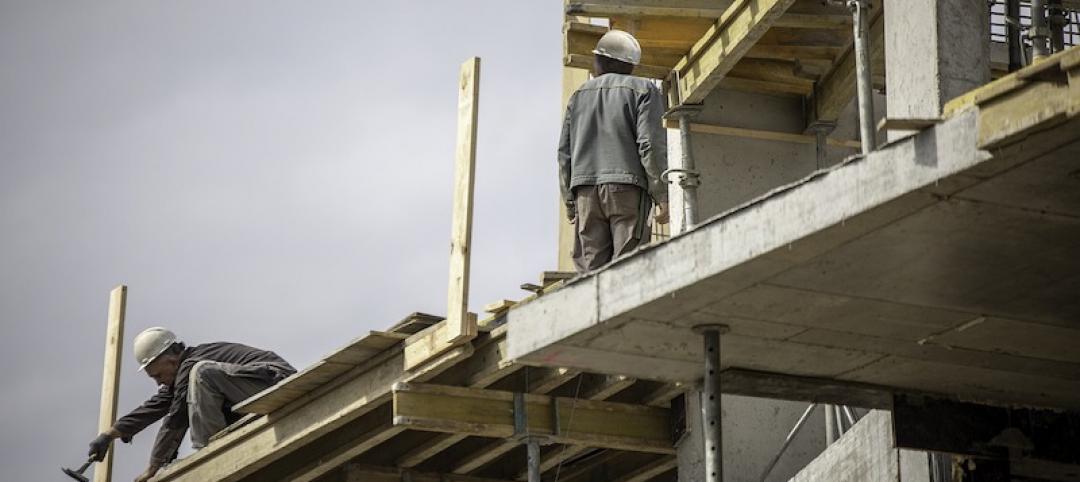Construction employment decreased in 241, or 67%, out of 358 metro areas between August 2019 and last month, according to an analysis of new government data that the Associated General Contractors of America released today. Association officials urged Congress to pass new coronavirus relief measures before leaving town.
“Although residential construction is picking up in many areas, public and nonresidential construction are shrinking,” said Ken Simonson, the association’s chief economist. “Project cancellations are spreading, and fewer new projects are starting up. That combination makes further employment declines inevitable unless the federal government steps up support for infrastructure.”
Simonson noted that construction employment was stagnant in 29 metro areas and increased in only 88 areas (25%) over the past 12 months. Nineteen metros had all-time lows for August construction employment, while 33 areas had record highs for August, in data going back to 1990 for most areas.
Houston-The Woodlands-Sugar Land, Texas lost the most construction jobs over 12 months (-22,800 jobs, -10%), followed by New York City (-21,700 jobs, -13 percent). Brockton-Bridgewater-Easton, Mass. had the largest percentage decline (-38 percent, -2,200 jobs), followed by Johnstown, Pa. (-34 percent, -1,000 jobs).
Indianapolis-Carmel-Anderson, Ind. added the most construction jobs from August 2019 to August 2020 (4,800 jobs, 9%), followed by Baltimore-Columbia-Towson, Md. (4,300 jobs, 5%). Niles-Benton Harbor, Mich. had the highest percentage increase (16%, 400 jobs), followed by Fond du Lac, Wisc. (15%, 500 jobs) and Walla Walla, Wash. (15%, 100 jobs).
Association officials urged Congressional leaders to not leave town until after the election without passing much-needed new coronavirus relief measures. In particular, the construction officials called on Congress to pass new liability protections for firms that are taking steps to protect workers from the coronavirus. They also urged Congressional leaders to boost investments in infrastructure and pass measures designed to preserve payrolls.
“The coronavirus and efforts to mitigate its spread have left our economy deeply wounded, depressing demand for many types of commercial construction projects,” said Stephen E. Sandherr, the association’s chief executive officer. “Congress can end the downward economic slide and help create needed new construction jobs by passing measures to boost demand and protect honest employers.”
View the metro employment 12-month data, rankings, top 10, and map.
Related Stories
Market Data | Jan 23, 2020
Construction contractor confidence surges into 2020, says ABC
Confidence among U.S. construction industry leaders increased in November 2019 with respect to sales, profit margins, and staffing, according to the Associated Builders and Contractors Construction Confidence Index.
Market Data | Jan 22, 2020
Architecture Billings Index ends year on positive note
AIA’s Architecture Billings Index (ABI) score of 52.5 for December reflects an increase in design services provided by U.S. architecture firms.
AEC Tech | Jan 16, 2020
EC firms with a clear ‘digital roadmap’ should excel in 2020
Deloitte, in new report, lays out a risk mitigation strategy that relies on tech.
Market Data | Jan 13, 2020
Construction employment increases by 20,000 in December and 151,000 in 2019
Survey finds optimism about 2020 along with even tighter labor supply as construction unemployment sets record December low.
Market Data | Jan 10, 2020
North America’s office market should enjoy continued expansion in 2020
Brokers and analysts at two major CRE firms observe that tenants are taking longer to make lease decisions.
Market Data | Dec 17, 2019
Architecture Billings Index continues to show modest growth
AIA’s Architecture Billings Index (ABI) score of 51.9 for November reflects an increase in design services provided by U.S. architecture firms.
Market Data | Dec 12, 2019
2019 sets new record for supertall building completion
Overall, the number of completed buildings of at least 200 meters in 2019 declined by 13.7%.
Market Data | Dec 4, 2019
Nonresidential construction spending falls in October
Private nonresidential spending fell 1.2% on a monthly basis and is down 4.3% from October 2018.
Market Data | Nov 25, 2019
Office construction lifts U.S. asking rental rate, but slowing absorption in Q3 raises concerns
12-month net absorption decelerates by one-third from 2018 total.
Market Data | Nov 22, 2019
Architecture Billings Index rebounds after two down months
The Architecture Billings Index (ABI) score in October is 52.0.

















